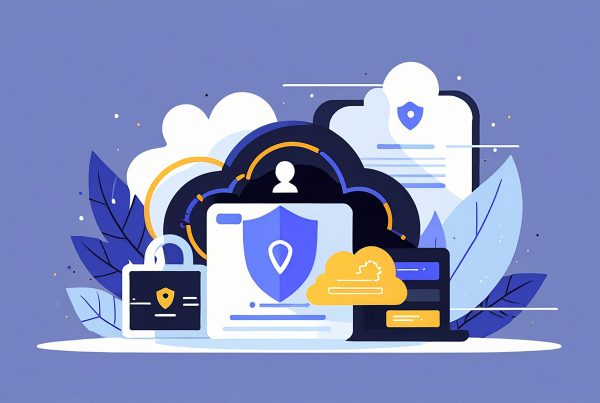Good mental health at work and good management go hand in hand and there is strong evidence that workplaces with high levels of mental well-being are more productive
For many of us, work is a significant part of our lives. It is where we spend much of our time, where we get our income and often where we make our friends. Having a fulfilling job can be good for your mental health and general well-being.
We believe in workplaces where everyone can thrive. We also believe in employers, employees and businesses playing their roles in creating thriving communities.
Good mental health at work and good management go hand in hand, and there is strong evidence that workplaces with high levels of mental well-being are more productive.
To commemorate Mental Health Awareness Month, we have come up with a few tips to help you take charge of your mental health and be your best self in the workplace and other areas of your life.
1. Talk about your feelings
Talking about your feelings can help you maintain your mental health and deal with times when you feel troubled. Talking about your feelings isn’t a sign of weakness; it’s part of taking charge of your well-being and staying healthy.
It can be hard to talk about feelings at work. If you have colleagues you can talk to or a manager who asks how you are during supervision sessions, it can help.
Identify someone you feel comfortable with and who will be supportive. You may want to think about what you want to disclose, who to and when a good time and place to do this could be.
If you are open about how you feel at work, especially if you are a leader, it might encourage others to do the same.
If you don’t feel able to talk about feelings at work, make sure there is someone you can discuss work pressures with – partners, friends, and family can all be a sounding board.
2. Keep active
Regular exercise can boost your self-esteem and help you concentrate, sleep, and look and feel better.
Exercising doesn’t just mean doing sport or going to the gym. Experts say that most people should do about 30 minutes of exercise at least five days a week. Try to do some physical activities that you enjoy as a part of your day.
If you work in an office or from home, it can make a huge difference to go out for a walk, do some stretching at lunchtime, or build exercise before or after work to ease you into the day or create a space between work time and personal time.
3. Eat well
What we eat can affect how we feel in the short and long term. A good diet can be beneficial for your physical and mental health.
It can be hard to keep up a healthy eating pattern at work. Regular meals, plus plenty of water, are ideal. Try and plan for mealtimes at work – bringing food from home or choosing healthy options when buying lunch.
Try and get away from your desk to eat. Stay away from caffeine when you are busy or feeling stressed. Ensure a ready supply of fruit/vegetables and snacks like nuts or trail mix with lots of nutrients.
4. Keep in touch
Relationships are key to our mental health. Working in a supportive team is hugely important for our mental health at work. It can be helpful to find a mentor or a small group of trusted colleagues with whom you can discuss feelings about work – to sense check and help you work through challenges. Try to maintain your friendships and family relationships even when work is intense – a work-life balance is essential.
5. Take a break
A change of scene or a change of pace is good for your mental health.
It could be a five-minute pause from what you are doing, a book or podcast during the commute, a half-hour lunch break at work, or a weekend exploring somewhere new. A few minutes can be enough to de-stress you. Give yourself some ‘me time.’
It can be hard to take holidays and time off from work. When we are stressed, it can seem even more challenging to take the breaks we are entitled to – when we need them most. Try and plan periods of leave for the year. When you are on leave or at home, resist the temptation to check in with work. If you find that you can’t break away, it may be a sign that you should be re-examining your workload to manage stress.
Sleep is essential to our mental health. Listen to your body. Without good sleep, our mental health suffers, and our concentration goes downhill.
6. Do something you enjoy
What do you love doing? What activities can you lose yourself in? What did you love doing in the past? Enjoying yourself can help beat stress.
Concentrating on a hobby, like ‘football manager’ or doing crosswords, can help you forget your worries for a while and can change your mood.
If possible, you should plan your workload to include tasks you know you are good at to ‘sandwich’ things you know will be harder or more stressful. At work, you may have a hobby you’d like to share or join in with colleagues – a book club or candle making class can be a great way to share a skill with others.
7. Accept who you are
We’re all different. It’s much healthier to accept that you’re unique than to wish you were more like someone else. Feeling good about yourself boosts your confidence to learn new skills, visit new places and make new friends. Good self-esteem helps you cope when life takes a difficult turn.
Be proud of who you are. Recognise and accept the things you may not be good at, and focus on what you can do well. If there’s anything about yourself you would like to change, are your expectations realistic? If they are, work towards the change in small steps.
8. Practice positive thinking
A more positive outlook on life is beneficial to your mental health. Research has shown that positivity has a tremendous impact on our physical and mental health. It can help lower blood pressure and boost your resilience to difficult situations. You can reduce your risk of depression, manage stress, and be happier by focusing on the positive. Stay mindful of your negative thoughts throughout the day, and try to transform those negative thoughts into positive ones. Use affirmations, practice gratitude, and learn to recognise, stop, and change your negative thoughts. Daily practice will make this a life-changing habit.
We hope you find these tips helpful and that they lead you to take charge of your mental health.
Follow us on Facebook, Instagram, LinkedIn, and Twitter for more tips and updates.
Subscribe to our YouTube channel to get to know us better, and join our inclusive Developer Community to get first-hand updates.
Please note that these tips are not a replacement for professional help.
Fincra cares 💜




